The Role of AI in Shaping the Future of the Film Industry

Think about it, the magic of moviemaking is taking a turn for the geeky. It's no longer just about clapperboards and dramatic lighting- we're stepping into a realm of ones and zeros. AI in the film industry is coming around like a trendsetting blockbuster, reshaping the way we produce, distribute, and even consume our flicks. Take the screenwriting process, for example. Scripts can be analyzable by algorithms, like those of ScriptBook, which predicts box office success, or the AI used in the movie "Morgan" that cut its own trailer in mere hours, something that would normally take weeks. The movie industry’s darling, Netflix, is already using AI to customize viewer experiences with hyper-personalized recommendations. And let's not forget about the incredible deepfake technology. Or the AI-driven movie, "Zone Out," entirely acted out by the world's first robotic actor, Ai-Da. This isn't just Luke Skywalker's lightsaber anymore, it's a redefining reality showing the power-play of AI in the movie-making scene. While the popcorn stays the same, the film industry, peeps, is going binary and digital in a major way.
First Take: What is AI?
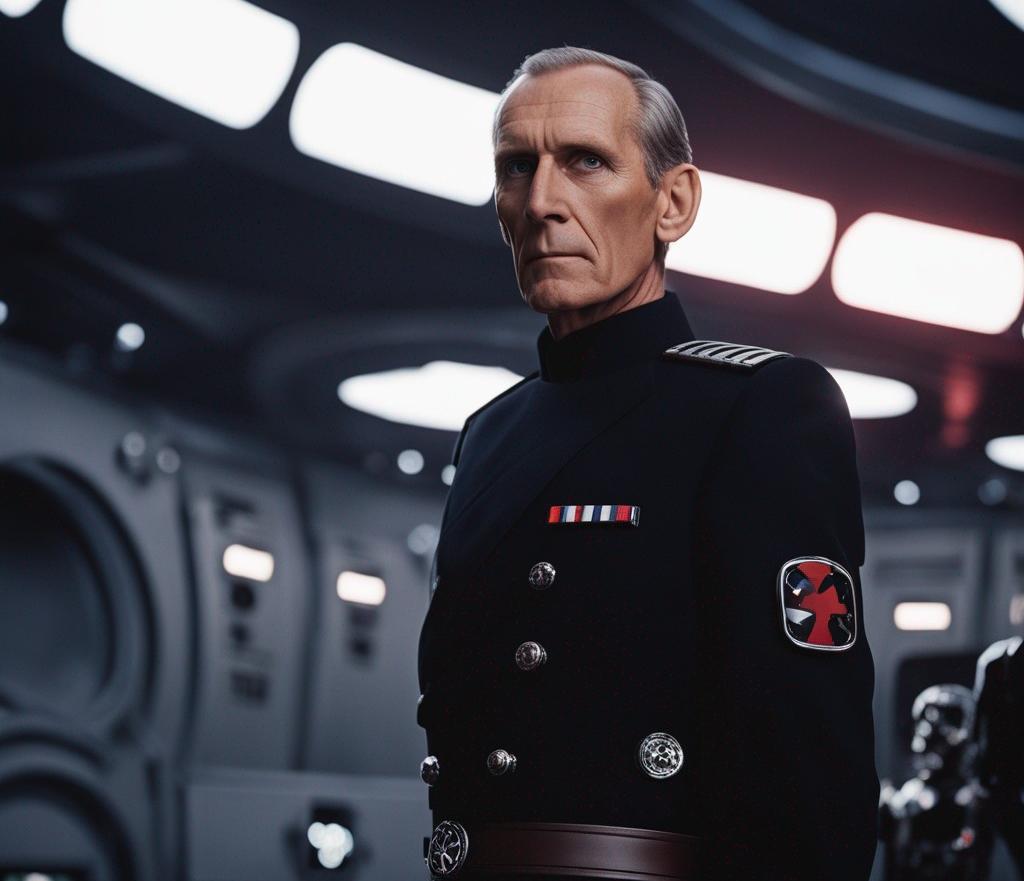
Ladies and gents, let's dive right in. AI, or if we wanna be all fancy about it, Artificial Intelligence, has been adding a spicy kick to the film industry like the last-second plot twist in a suspense thriller. No more monotonous tasks or budget-breaking special effects, AI's all about making life easy-breezy while upping the movie-watching experience. For instance, AI's power-duo deep learning and machine learning are transforming movie production, from special effects to editing. Remember the Tarkin magic in "Rogue One: A Star Wars Story"? That was AI! And let's not forget target marketing and content recommendations. Ever wonder how Netflix knows you'd like that quirky indie film even before you do? Yup, you guessed it— AI again! Moreover, AI is spinning the color wheels in scriptwriting too – like Benjamin, our first AI-scripted short film. So, clearly, AI in the film industry isn't about stealing the human touch- quite the opposite! It's about enhancing our creativity, spicing up the way movies are made and enjoyed, and letting filmmakers focus their energy on what they love the most— crafting captivating stories. So pop some popcorn and enjoy the AI-led show!
A Brief History of AI in Film
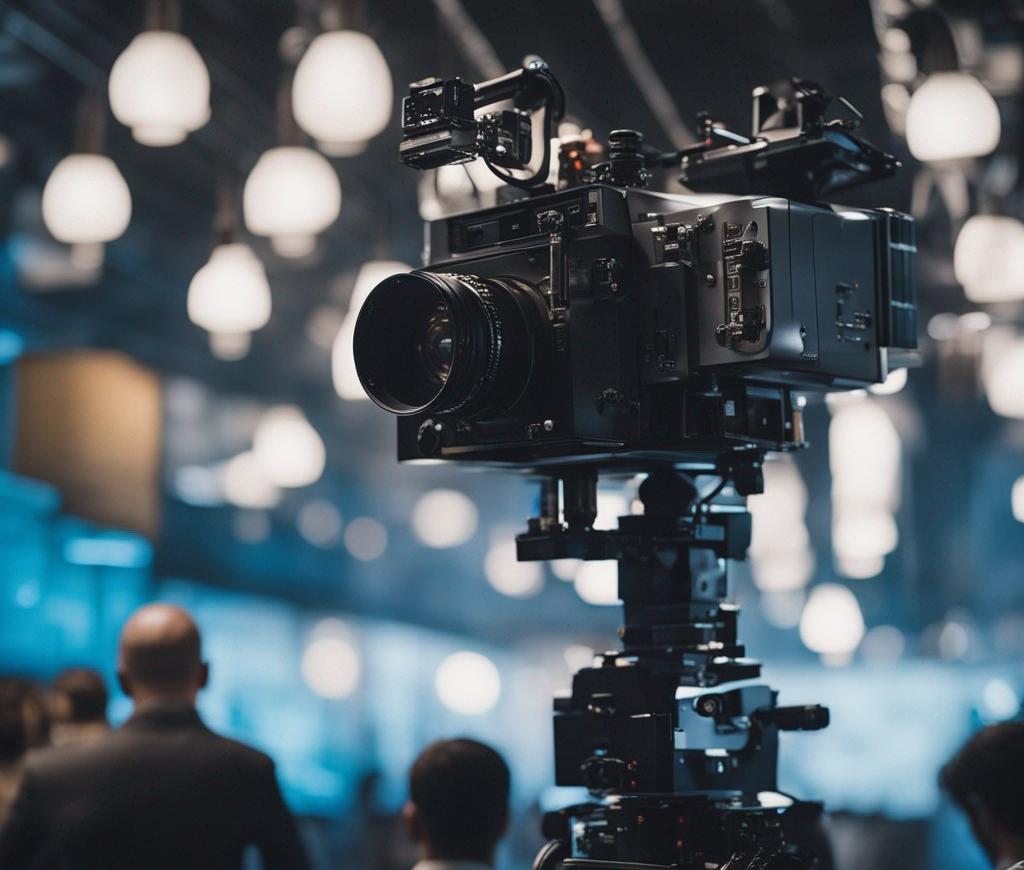
Let's take a quick spin down memory lane to see how AI has influenced the big screens! One of the earliest and iconic uses of AI in the film industry was 'HAL 9000,' the sentient supercomputer in '2001: A Space Odyssey' (1968). Though it was fiction, it sparked off our fascination towards AI's possibilities. In the '70s and '80s, films like 'Star Wars' and 'Blade Runner' continued this trend, showcasing advanced droids and replicants as key characters. Fast forward to the digital age, we saw AI taking on more practical roles behind the scenes. It started subtly influencing filmmaking procedures, from scriptwriting, post-production editing to special effects. For example, Spielberg's 'A.I. Artificial Intelligence' (2001) used AI for facial animation, while the 'Matrix' series (1999-2003) applied 'bullet time' - a visual effect managed by AI. More recently, in movies like 'The Lion King' (2019), AI technology was instrumental in realizing ultra-realistic CG animations. Hence, from stirring up sci-fi curiosities to redefining production techniques, AI's presence in the film industry has been quite the journey, wouldn't you agree?
The Role of AI in Filmmaking
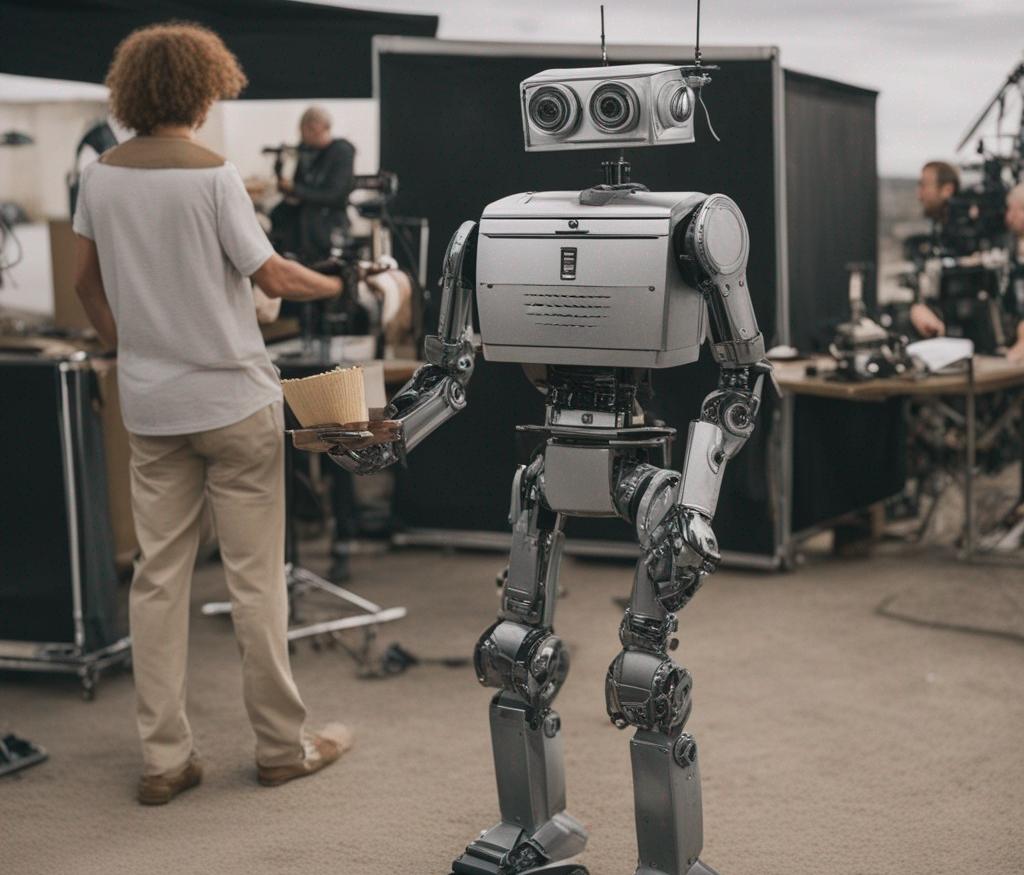
Picture this: AI tools are simplifying scriptwriting, helping create bone-chilling horror to heart-fluttering romance by analyzing mood patterns from past successful films. Pretty epic, right? That's not all. Trail-blazers like 20th Century Fox are using Merlin, an AI-driven program, to predict what films will make the big bucks. Imagine knowing your film will be a blockbuster before the popcorn’s even popped. And let's not forget the impact of AI in post-production. AI software for color grading and adjusting sound quality is significantly reducing the man-hours put into editing. Boom! Efficiency like never before. Not to mention, ‘Zone Out’, an AI software, is enabling filmmakers to convert an actor's two-dimensional images into mind-blowing 3D models. Forget stunt doubles, AI doubles are the future! Plus, with AI tools forecasting viewer preferences, personalized marketing strategies for films are becoming more precise than ever. So, let's cut to the chase – AI in the film industry is no longer a cameo, it's the star of the show! Roll credits, folks.
AI as Hollywood's New Screenwriter
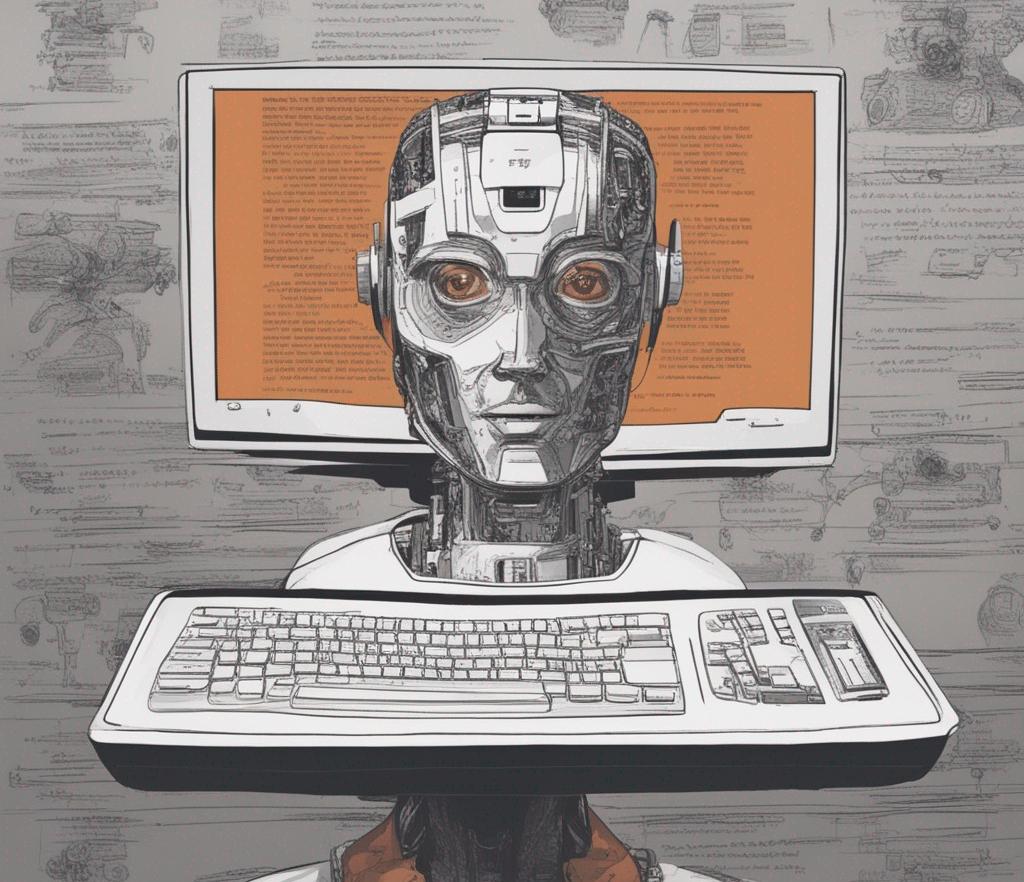
Hold onto your popcorn, folks, because AI is stepping into the spotlight as Hollywood's new screenwriter. The role of AI in the film industry is today as evident as the ‘pop’ in pop culture. A fantastic example of this is the AI-written film "Sunspring" - a sci-fi hit created by feeding a neural network heaps of sci-fi scripts, and then letting it do the writing. Now, it might not have been a box-office banger, but it gave us a glimpse into the future role of AI in shaping the film industry. Beyond writing, AI is also making waves in editing, predicting which films will score big, and even casting. And let’s not forget about Cinelytic, an AI tool making casting decisions by calculating an actor’s “value” in different markets. So, while we won't see robots walking the red carpet just yet, the influence of AI in the film industry is weaved into every frame, plot twist and sequel. It’s a real game-changer, and the credits are just beginning to roll.
Spotlight on: AI in Visual Effects
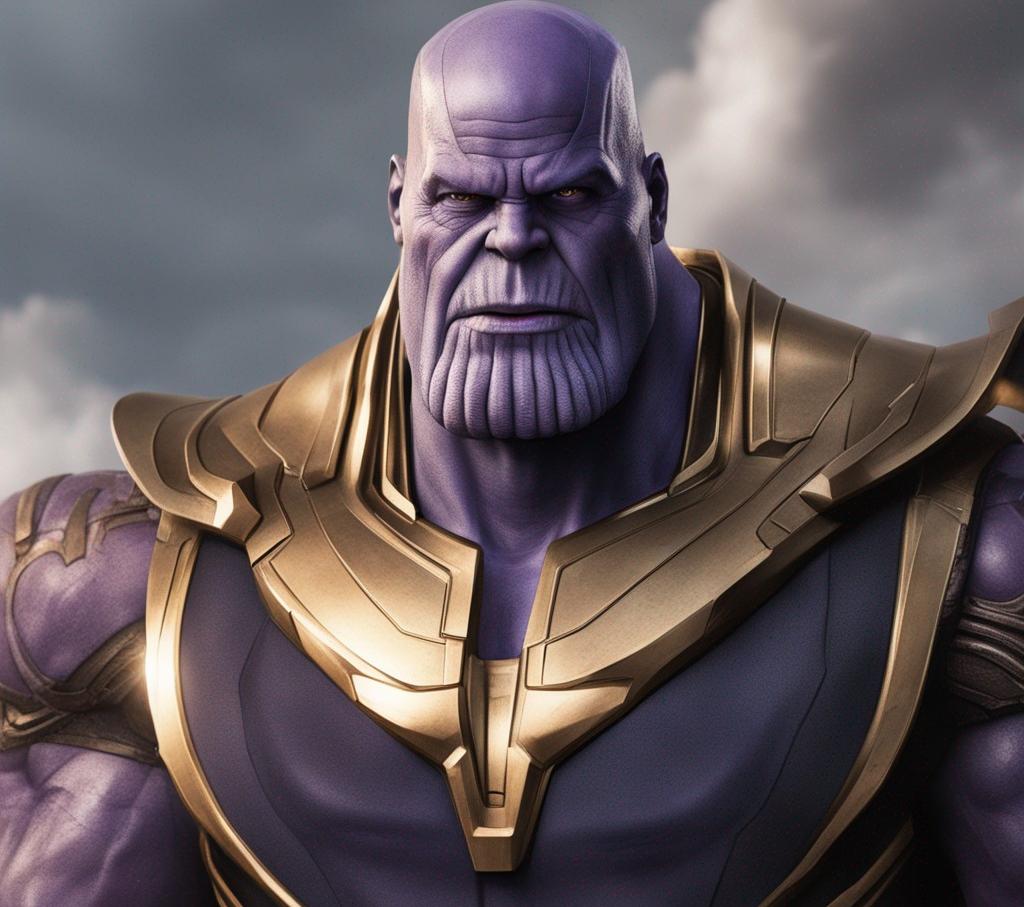
Did you know that AI is changing the game when it comes to visual effects in the film industry? And we’re not just talking about a couple of tweaks here and there, but creating a complete visual revolution. Take the example of Marvel's Avengers: Infinity War. The big baddie, Thanos, was brought to life using performance capture and AI. The detailed CGI rendering required sophisticated machine learning algorithms to create realistic skin textures, expressions, and movements. The star of the show, however, was AI's ability to generate Thanos's complicated facial dynamics, which would've been practically impossible using traditional CGI practices. But it doesn't stop at supervillains. AI is now routinely used in the film industry for digital touch-ups, enhancing background details, and even creating entire, ultra-realistic landscapes. And let's not forget about deepfakes, powered by AI, they’re blurring the boundary between reality and CGI like never before. The role of AI in the film industry is expansive and constantly evolving. It’s opening up fantastic new possibilities for filmmakers and taking visual storytelling to dazzling new heights!
Emerging AI Trends in Movie Marketing
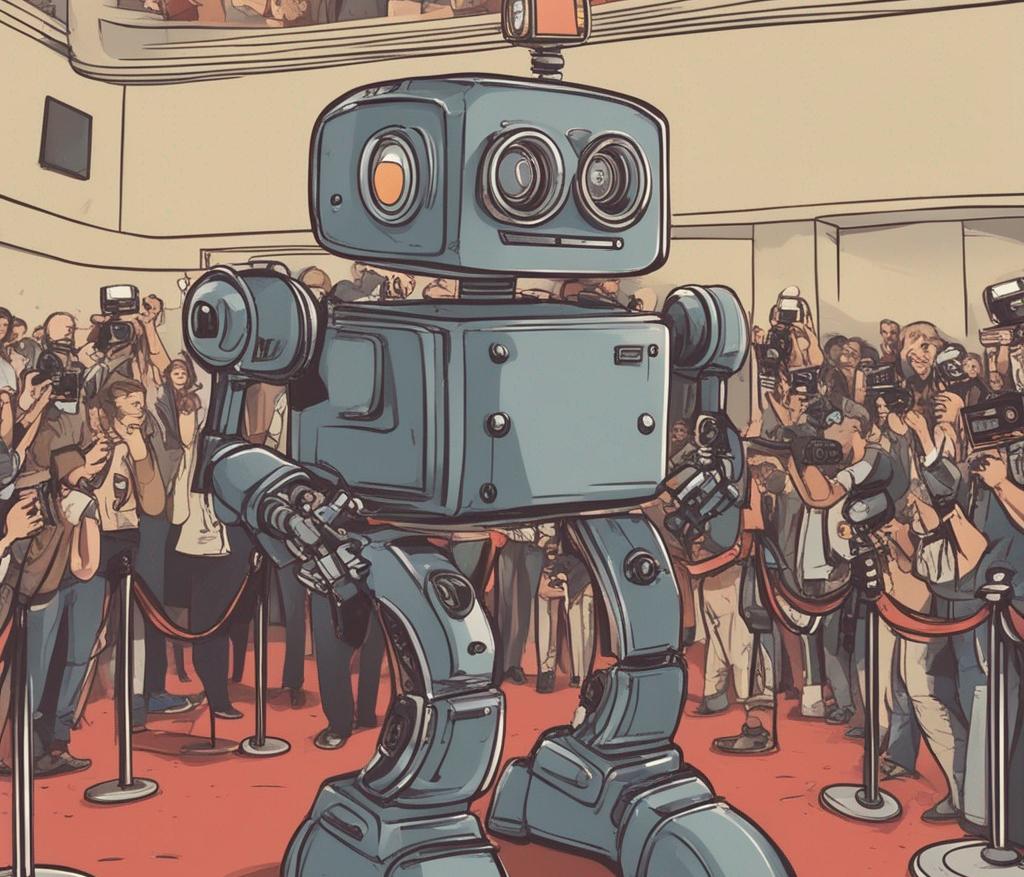
Gone are the days when movie marketing primarily depended on fancy banners and star-studded premieres. AI in the film industry is revolutionizing the game like never before. Cutting-edge algorithms are being used to analyze movie-goers' behavior and preferences, enabling studios to tailor trailers, posters, and promotional materials specific to the likes of different demographics. For instance, 20th Century Fox collaborated with Google's AI system, AutoML, to analyze movie trailer themes that are most likely to grab viewer attention. The AI then created an optimized trailer for their movie "The Predator" which was a big hit among the audience. In another instance, the startup company ScriptBook uses AI to predict the financial success of a film before its release by analyzing the screenplay. Its accuracy level? A whopping 86%! And let's not forget the role of AI in personalizing digital ads. AI systems scrap online data and effectively target ads to potential movie-watchers based on their online behavior, viewing history, movie ratings, and more. In a nutshell, AI is becoming an indispensable Oscar-winning component behind the scenes in the film industry.
Evaluating AI's Threats to the Film Industry
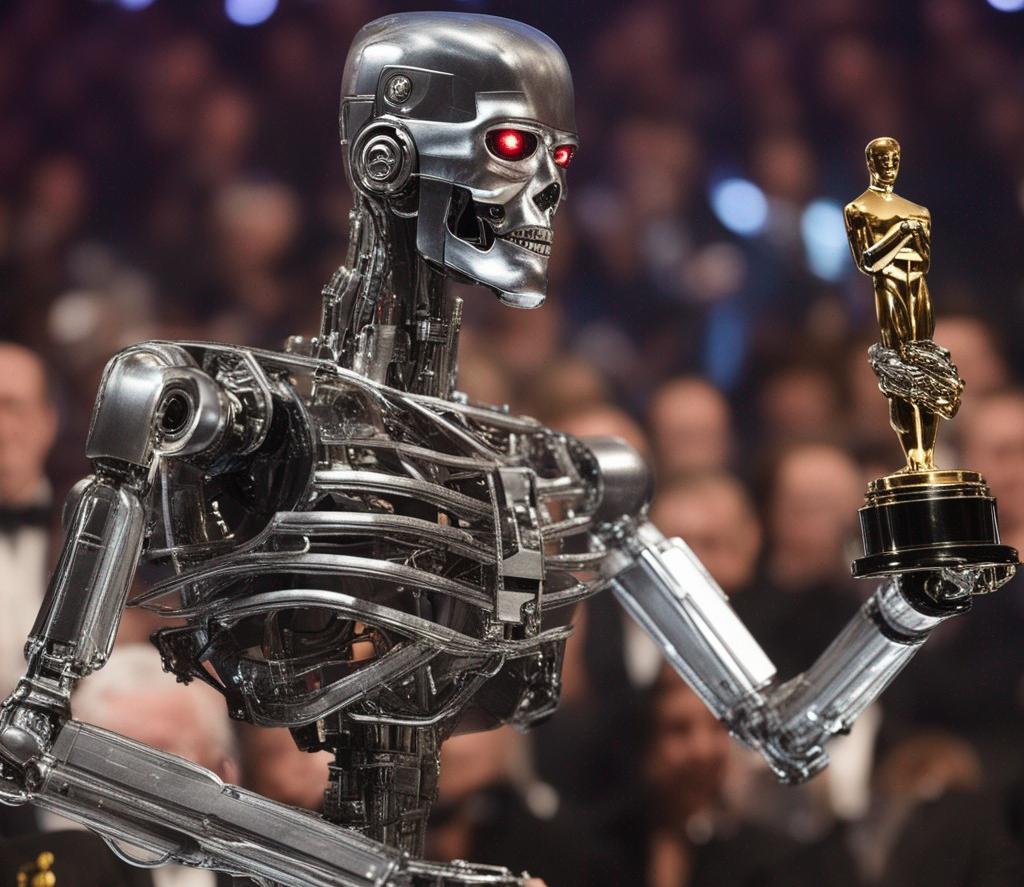
While AI's increasing role can bring about a revolution, it also poses potential threats to the film industry. As AI's prowess grows, many fear it might replace the need for human creativity in scriptwriting or even acting. Remember when AI in the film industry took its baby steps with the short film, “Sunspring,” in 2016? The entire script was AI-made, causing quite a stir - both awe and concern. Or consider how the 2018 horror flick, "The Beast," leveraged AI for its bone-chilling, terror-inducing sounds, virtually negating the need for human Foley artists. Then we have those eerily lifelike digital faces in movies like Star Wars: Rogue One and The Curious Case of Benjamin Button. If AI gets crafty enough to create compelling storylines, deliver spectacular visual effects, and flawless performances, will we still need human filmmakers? After all, tech platforms like Netflix, with their massive data, are already using AI to predict and create content that viewers will likely enjoy. A potential threat? Yes. But the bigger question is, can machines ever replicate the unpredictable spark of human imagination and emotion? Therein lies the crux of the AI-human tug-of-war in filmmaking.
Potential Pitfalls of AI in Filmmaking
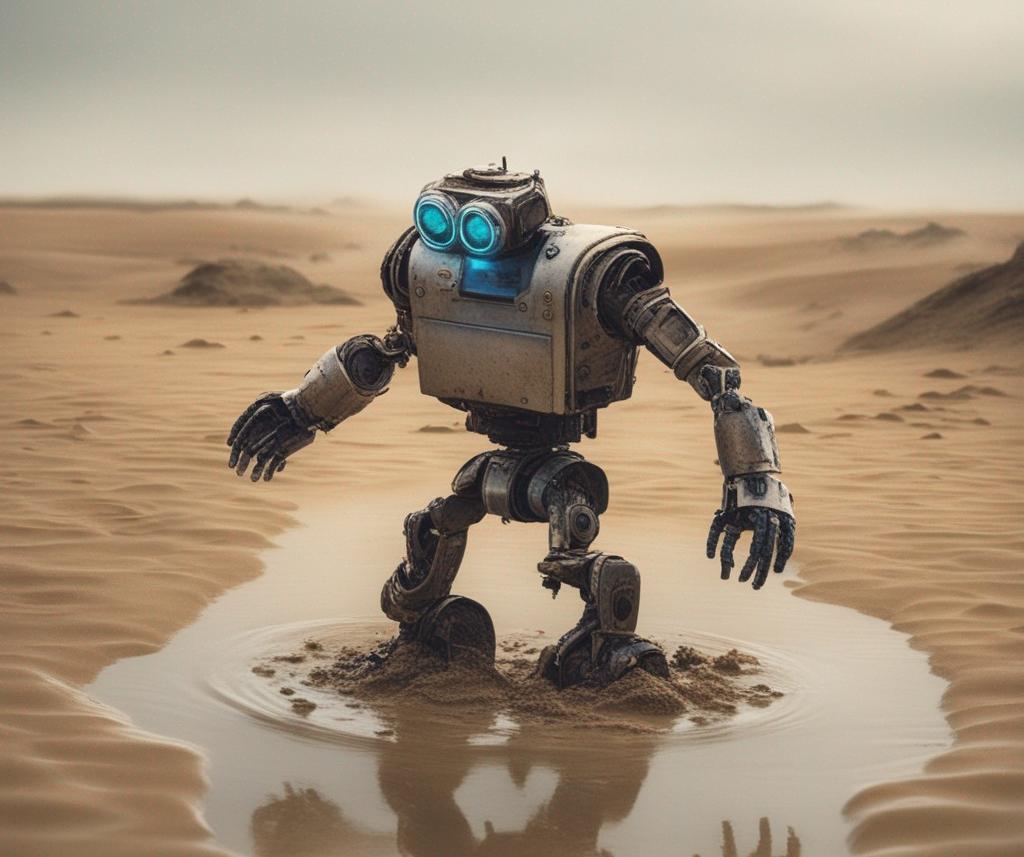
While the advent of AI in the film industry is laden with potential, it's crucial to acknowledge the accompanying pitfalls. For instance, there's a palpable fear among creative professionals about the dilution of originality and human essence as AI gains prominence. While AI's capabilities to produce screenplays based on algorithms and data analysis are remarkable, could it ever truly capture the profound, multifaceted emotions inherent to human-authored narratives? Remember that AI-crafted short sci-fi film, "Sunspring"? Even kitchen appliances could offer better dialogue. Moreover, the shadow of job insecurity looms large. With film editing processes being automated, we might see job terminations instead of celebratory red carpet walks for some individuals in the editing department. Beyond this, an overdependence on AI could potentially erode the skill sets of workers, leaving them less equipped to navigate industry transformations. And in the context of cultural adaptability, there's a risk that AI might stumble over subtle cultural undertones and evolving societal norms, leading to possible blunders (recall Microsoft’s "Tay"). Thus, despite AI transforming multiple facets of filmmaking, it's paramount that we strike a harmonious balance between technological progression and the preservation of empathy, job security, and the rich tapestry of human diversity that truly breathes life into a film. Nonetheless, despite these potential pitfalls, the progression of AI seems inexorable, and we must find a way to harness its capabilities while mitigating its challenges, as AI's eventual integration appears inevitable.
The Final Cut: Concluding Remarks

Bottom line, the role of AI in the film industry can't be understated. We're seeing AI scripts, CGI, digital marketing tactics, and smart video editing tools dramatically reshaping the landscape. Remember "In the Blink of an Eye" in 2019? AI wrote that whole script! Then you've got more front-end applications like those snazzy AI-powered CGI techniques in big projects like "Avengers: Endgame" and "The Lion King" remake. In marketing, Warner Bros. collaborated with the AI company Cinelytic to drive more informed decisions on release strategies, maximizing audience reach. And how about streamlined video editing with AI? Software like Adobe Sensei can automate tedious editing tasks, enabling filmmakers to focus on the creative aspects. What this all boils down to is that the integration of AI in the film industry could just be the hero we need to foster creativity and efficiency. It's breaking barriers, shaving budgets, and revolutionizing the way we create and consume films. So roll credits, folks, AI’s star performance in filmmaking is just getting started.
